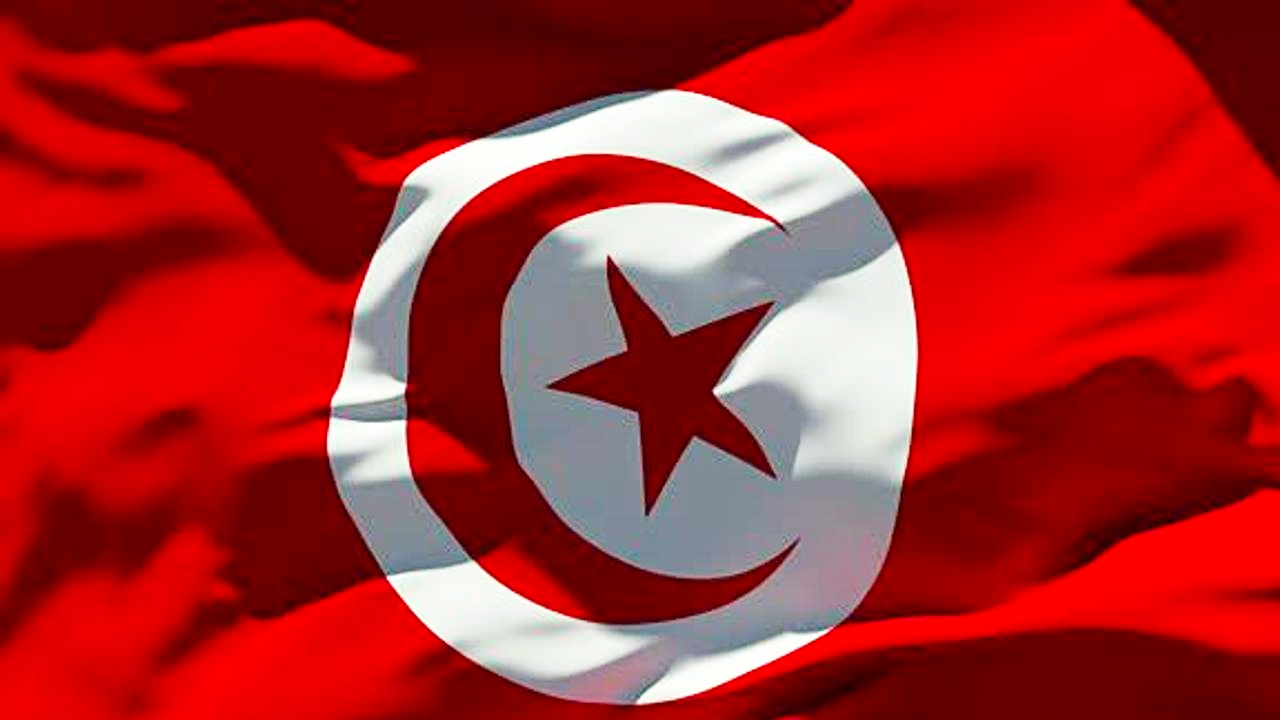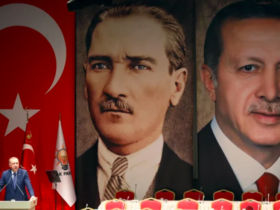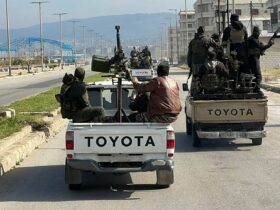For a week now, protests and clashes between police and protesters have continued in major Tunisian cities. Tunisian security forces arrested at least 1,000 people during the urban unrest, the government deciding to use the army to quell the protests on Sunday night.
Tensions in the country have persisted for months, and nothing seems to be able to ease the situation: What are the causes of this unrest a decade after the Tunisian revolution and the Arab Spring? Has the country really established “democracy”, as claimed by international organizations over the last ten years?
Events and Causes
Protests swept through cities and towns across Tunisia, from the Tunisian capital to the cities of Kasserine, Gafsa, Sousse and Monastir, often accompanied by violence. Demonstrators accuse police of excessive brutality, and police call for the preservation of order. In Sidi Bouzid, which became the cradle of the Arab Spring a decade ago, police used tear gas to disperse protesters. Clashes also occurred in socially deprived areas of the capital, including Ettadhamen and Sijoumi, when hundreds of angry young people burned car tires and blocked roads. The Tunisian suburb of Hay Ettadhamen, one of the capital’s poorest neighborhoods, saw some of the most regular and violent demonstrations this week, one of the most densely populated areas in North Africa, with a population of more than 140,000.
The underlying reason for the protests was the government’s failure to straighten out the economy and improve Tunisia’s unemployment figures. About a third of the North African country’s youth are unemployed, while others are forced to leave the country in search of more stable wages.
The protestors slogans range from demands for jobs to radical calls for regime change.
The trigger for the new protests was the introduction of a four-day quarantine, falling on the January 14 memorial date, which implies a ban on public events. This angered many Tunisians.
The Covid-19 pandemic hit Tunisia’s key tourist sector especially hard: the country is famous for its beautiful historic towns and white sandy beaches, as well as for its desert tours and ancient sites.
The situation has been exacerbated by restrictions due to the state of emergency in Tunisia amid developing terrorist activity. Since December 2020, Tunisian President Kais Saied extended the state of emergency in Tunisia until June 23, 2021. The state of emergency was imposed on November 24, 2015, when a terrorist attack took place in the center of the capital near the buildings of the Ministries. A suicide attack on a bus carrying the presidential guard killed 13 people and injured 20 others.
Reactions and Measures
President Kais Saied tried to speak directly to the protesters when he made a surprise visit Monday night to the popular Mihla neighborhood near Tunis. He warned protesters about extremist Islamist forces “acting in the shadows,” which he said were trying to wreak havoc and destabilize the democratically elected government.
Curiously, Ennahda, a party of moderate Islamists who have supported the government since the Arab Spring, have also sided with Saied in these protests, condemning the unrest.
The party said it is important to “tell the people the truth about last night’s protests, carry out the necessary investigations, protect public and private property and apply the law.” They also condemned “the attacks on private and public property, the looting and sabotage of administrative and commercial institutions”.
Ennahda, although close to the Muslim Brotherhood, still claims to be pro-democracy, and has not taken a hard protective line regarding Islam lately (for which its leaders have been criticized by their more conservative supporters) – for example, after France insulted Islam and harassed the religion, the head of Ennahda declared a commitment to friendship with the country, which caused confusion among many.
In this way, Ennahda tried to cut off attempts to accuse Islamist political movements of swaying the protests and staying in power.
But what unites Saied, Ennahda, the opposition and the organizations involved in the protests is the lack of any understanding about how to improve Tunisia’s economic situation.
On January 19, Tunisian Prime Minister Hisham Al-Mashishi announced a change in government amid unrest because, in his estimation, many of the leaders were not up to the job. Al-Mashishi said he understood public discontent over the difficult economic situation and the frustration of young people, but that continued violence was unacceptable.
He tried to make contact and concessions to the angry crowd:
“Your voice is heard, and your anger is legitimate… Don’t let the saboteurs in,” he said, addressing the protesters.
And yet, amid intensifying clashes, Tunisian authorities deployed the army to several provinces to deal with the riots.
Tunisia’s influential trade union and many human rights groups supported the protest and voiced their support, accusing the incumbent authorities of squandering the potential of the Tunisian revolution.
Meanwhile, overtly liberal foreign organizations, which regularly fuel protests in various countries and promote color revolutions, exclusively support the protesters. Amnesty International has asked the Tunisian authorities to show restraint in order to ease tensions and support the rights of the many hundreds of detainees, but the authorities are increasingly relying on the help of the army and using tear gas against the protesters.
Dynamics of the economy before and after the revolution
Curiously, as Sarah Yerkes, senior fellow at Carnegie’s Middle East Program, points out, the situation is paradoxical: given the economic downturn, the older generation is even nostalgic for the days of Ben Ali, whom the Western liberal mainstream media calls nothing less than a “dictator”. Back then, young people inspired by Western NGOs protested for similar formal reasons – unemployment.
“As several people explained, some Tunisians look back fondly at the dictatorship as a time of lower unemployment and poverty, blindly ignoring the massive corruption and human rights abuses perpetrated by the Ben Ali regime”, Yerkes says.
As the Star Tribune writes, people played a song popular during the Ben Ali dictatorship, with lyrics about perfect beaches and sunny weather. Even a few shouts of “God Bless Ben Ali!” could be heard.
Ten years after the historic revolution, whose slogan was “employment, freedom and dignity,” Tunisians feel they have anything but that. According to the National Institute of Statistics, one-third of Tunisian youth are unemployed, and one-fifth of the country lives below the poverty line.
The GDP indicator speaks for itself of the negative trend since the Arab Spring: Tunisia’s economy collapsed precisely in 2011, and has not reached its former high levels since, despite the so-called “democratic regime”.
The unemployment rate was at its lowest just before 2011:
It is also curious that the protests in Tunisia entered an active phase after an agreement with the IMF ended in 2020.
On the eve of the latest protests came news of a new IMF program in Tunisia. The Tunisian government reaffirmed its commitment to the International Monetary Fund (IMF) to develop an economic reform program. It is possible that the protests are supported by international organizations in order to make Said a more manageable president, and not allow a more independent economic policy while holding on to the needle of IMF tranches. After all, IMF borrowing will be contingent on implementing reforms that previous governments have failed to implement. itch expects public debt to reach 89% of gross domestic product in 2021 – up from 72.5% in 2019.
Conclusions
10 years ago the Tunisian revolution took place, and former President Ben Ali was forced to resign and flee the country. International organizations amicably welcomed “democracy” in Tunisia. But what good is democracy if it leads to impoverishment of the country, dependence on the IMF, and rising unemployment?
The government in Tunisia is currently one of the most fragile states affected by the Arab Spring; supported by a fragile coalition of rival parties after the 2019 elections, a deeply fractured parliament has been formed. Amidst the fueling of protests by international organizations, Saied is clearly being forced into reforms that will make Tunisia permanently subject to the neoliberal ideology of the globalists. According to the experience of other countries, IMF tranches are a deception, a lever of control disguised as a need for humanitarian, economic, and political reforms.
The Arab Spring seems as though it has not yet come to an end – as long as Tunisia has any hope of sovereignty, the country will be hard pressed to cope with its internal problems.

















Leave a Reply